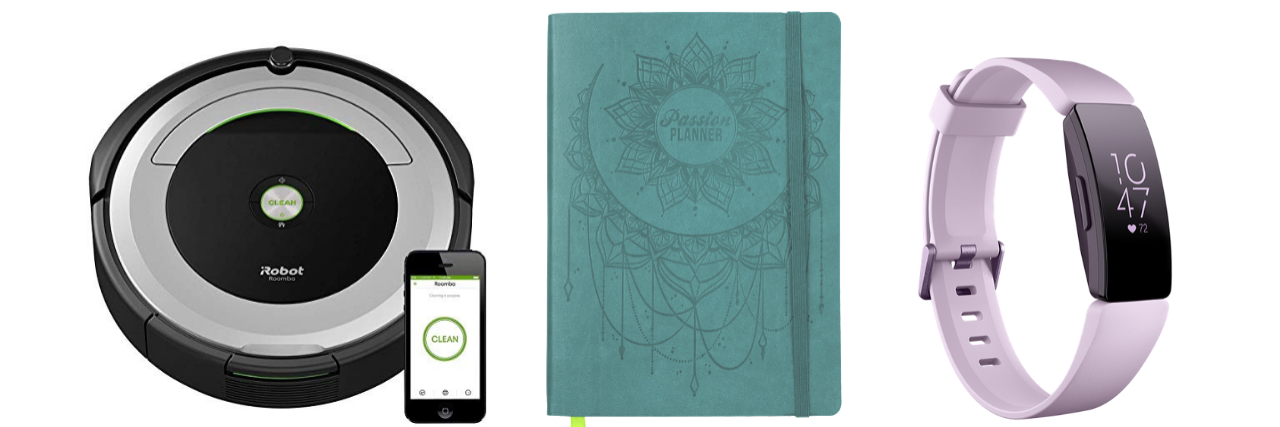27 Items People Have Splurged on to Help Them Manage Their Chronic Illness
Editor's Note
We hope the products below, all recommended by our Mighty community members, help you or a loved one in your health journeys. Just so you know, The Mighty may collect a share of sales from the Amazon links on this page. Prices and product availability are accurate as of publication.
There’s no way around it: living with a chronic illness is damn expensive. There’s the cost of doctor appointments, procedures and surgeries, medications, treatments, medical supplies and so on. Now add to that the cost of less talked about expenses like following a certain (more expensive) diet, paying for out-of-pocket therapies like massage, or utilizing services such as meal delivery or housecleaning. All of these costs – while necessary for symptom management – can add up quickly.
When day-to-day life with chronic illness is already so expensive, why talk about “splurging” on something extra?
When it comes to a splurge, most of us probably think of something nice that we really want, but perhaps don’t need. A splurge item is basically a gift to yourself.

Though a splurge item may not be absolutely necessary, that doesn’t mean it won’t benefit you (even if it does put a bit of a dent in your wallet). The point of saving up to gift yourself this item is to ultimately make your life easier in some capacity. For those with chronic illness, that could mean this item or service helps you with symptom management, reduces your stress and exertion or offers you comfort and healing.
The term “splurge” tends to conjure up the idea of buying expensive, luxury goods – but that doesn’t have to be the case. A splurge item could be anything from a latte at your favorite coffee shop to a new car that allows you to travel comfortably. It all depends on your unique needs and financial situation.
If you are looking to “treat yo’ self” (because, hell, you deserve it!), check out the splurge items our Mighty chronic illness community recommended below. Let us know which items you’d add to the list in the comments!
Here’s what our community recommended:
1. Robot Vacuum Cleaner
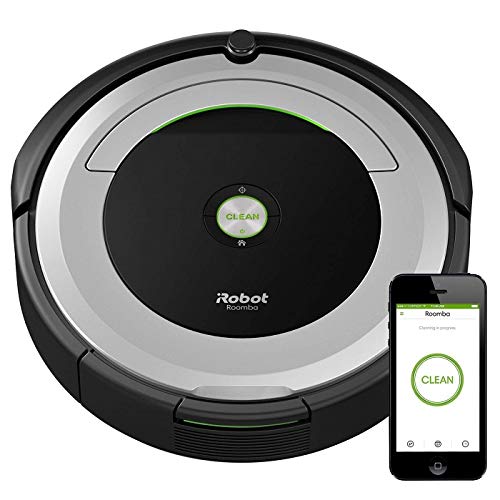
Chronic illness can make it difficult (even impossible at times) to properly clean your home. Symptoms like chronic pain or fatigue may prevent you from being able to hold a heavy and cumbersome vacuum – much less haul it from room to room or up and down stairs. A Roomba-style vacuum that zips around on its own may cost a bit more than your run-of-the-mill vacuum, but it’s one less chore you have to add to your to-do list.
“A Roomba type vacuum,” said Mighty member @Nyet. “It cleans and vacuums on its own. Using a vacuum is painful.”
“I bought a second vacuum cleaner for the house. We have three floors, and I just couldn’t carry the very heavy Henry one up all those stairs anymore. I still don’t hoover often, but the lighter vacuum has been life-changing for how accomplished I feel when I can,” explained Kirsty Israel.
“My husband bought me a robot vacuum which has been a lifesaver as I cannot push a regular vacuum around without needing to sit down every two minutes,” added Josie Dagga.
Buy an iRobot Roomba Vacuum for $219.99 from Amazon.
2. Massage Chair
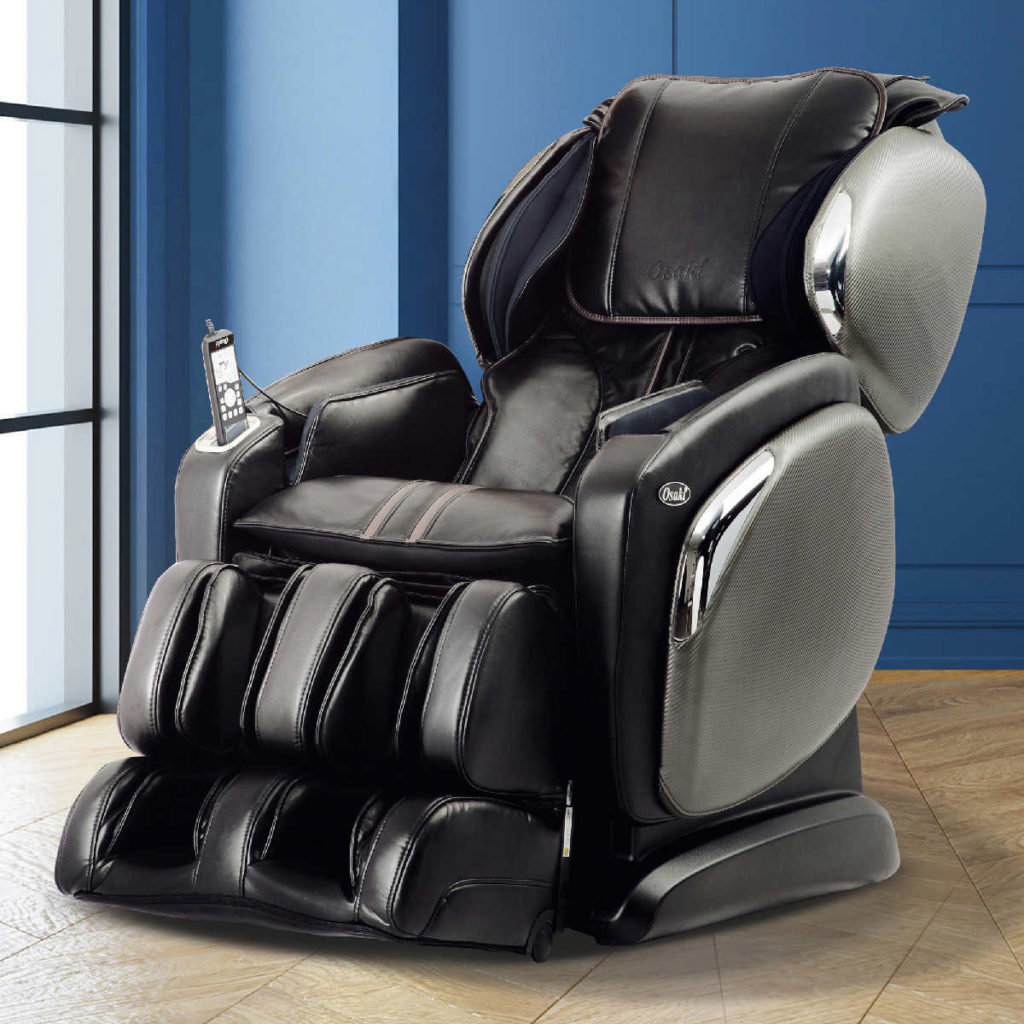
You might expect to see a massage chair at the nail salon or the mall – but not your own living room, right? Well, they may be expensive, but you can actually purchase a luxurious massage chair to use anytime in the comfort of your own home. If you struggle with stiffness, tension or chronic pain, having an on-demand masseuse could be helpful for managing your symptoms.
“Got a $9000 massage chair for half price because it was a showroom model for six months,” Karen Jolley wrote. “I have RA [rheumatoid arthritis] and fibromyalgia which gives me endless muscle pain and cramping. I spend up to an hour in the chair every day. It cost a lot of money but was cheaper than paying for ongoing therapeutic massage.”
“My mattress and my massage chair,” said Minionette Wilson. “They were both expensive, but they help me rest and relax and cope with my never-ending chronic pain.”
Buy the Osaki Massage Chair above for $1,699.99 from Amazon.
3. Adjustable Bed Frame
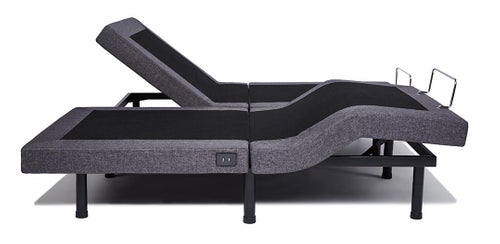
Sleeping with chronic health issues is no easy feat. It can be challenging to get comfortable when you’re dealing with pain and a plethora of symptoms. Adjustable bed frames come in various shapes and sizes, each boasting unique features, but they all offer you the ability to adjust the layout and height of your bed frame. Want to raise your head up? You got it. Want to lower your head but raise your feet? No problem. Adjustable bed frames help you find the position that’s most comfortable for you.
“My husband and I recently bought a split king adjustable bed and new mattresses. I can position the bed to ‘zero gravity’ which helps to relieve pressure points. In the morning I can lower the foot of the bed and raise the head of the bed until I am in a sitting position. So much easier to get in and out of bed,” explained Holly Ross. “This will sound horrible but having two separate mattresses might just save my marriage lol. My husband often accidentally poked, prodded, and elbowed me while sleeping. Also, his rough (to me) blanket would rub up against me and it was so irritating. He’s never complained but I’m sure my tossing and turning couldn’t be too pleasant for him either. Yes… these beds are expensive but, to me, well worth it!”
“I just bought my first adjustable bed. I have fibromyalgia, chronic migraines and POTS [postural orthostatic tachycardia syndrome] so I spend a lot of time in bed. It gets delivered Friday. So excited to use it,” wrote Misti Phillips.
“My adjustable posture cloud bed frame,” added Nancy Lyn. “It has massage with settings head and foot adjusts head and foot and has USB ports.”
Buy a split king adjustable bed frame for $1,269 from Amazon.
4. Weighted Blanket
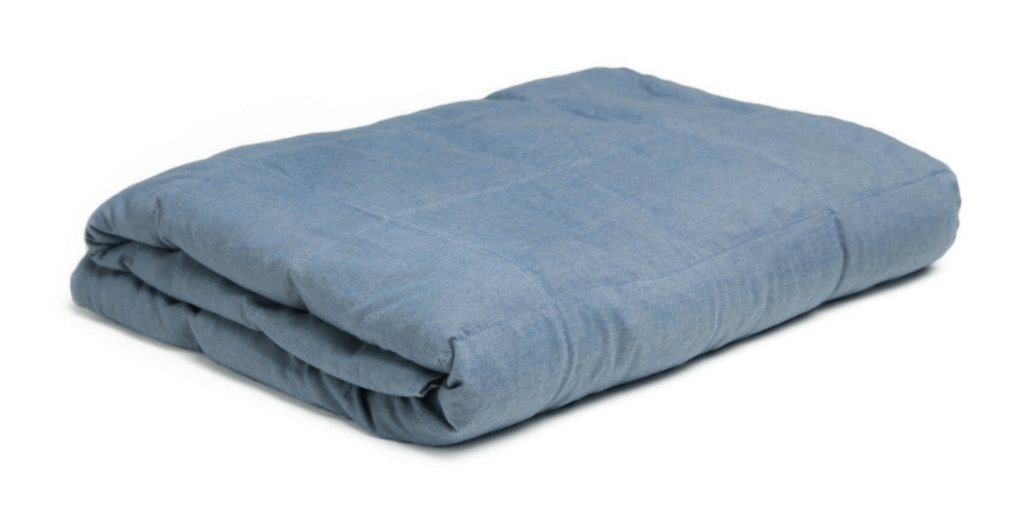
Weighted blankets don’t just feel like a giant hug; they can also help ease insomnia and anxiety, relax your nervous system, soothe restless leg syndrome, improve sleep quality, fight stress, boost your mood, help with symptoms of autism or sensory processing disorder (SPD), and reduce pain. Weighted blankets often don’t run cheap, but many say they are well worth the cost.
“A weighted blanket helps with my anxiety and fibromyalgia,” said Mighty member @AmazingGrace.
“My weighted blanket,” Adrienne Hewitt told us. “It was well worth every dime I saved, scrimped, and worked overtime for.”
Buy a weighted blanket for $63.66 from Amazon.
5. CBD Products
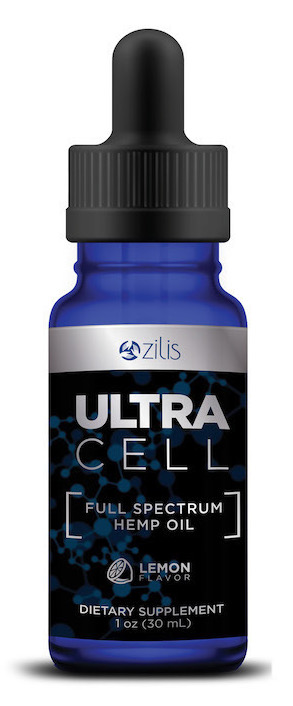
Though medical marijuana is still illegal in many states and countries, in the last several years there’s been an explosion in products containing CBD, the compound in cannabis that can help relieve pain without the high. Many companies now offer oils, lotions and edibles that contain CBD derived from hemp, which contains CBD but very low levels of THC. It’s important to talk to your doctor before giving any CBD products a try, but some of those with chronic pain conditions have found that the price is well worth the relief they experience.
“CBD oil! $70+ every one to two months. It really helps to keep the edge off both physically and mentally!” wrote Jessica Newcomb.
Buy the hemp/CBD oil above (30-mL bottle) for $119.95 from Ultracell.
For more recommendations from our community, check out these 15 CBD products people with chronic pain swear by.
6. Finger Splints
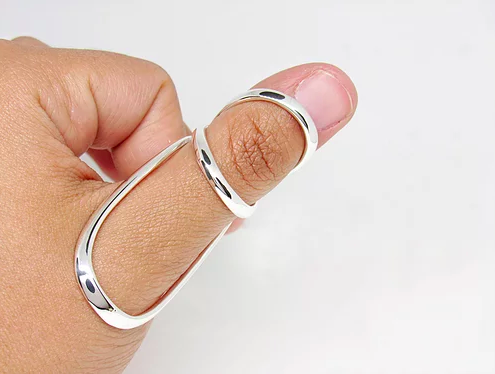
Finger splint jewelry is a type of jewelry that serves to support and stabilize specific joints in the hand, fingers and wrist. It can help prevent pain and injury in people with Ehlers-Danlos syndrome, arthritis or hypermobility caused by another condition. Finger splints are made in a variety of shapes, sizes and materials. While plastic ring splints tend to be much cheaper than metal ring splints, metal ring splints can often be customized to better fit your hands and fingers and are more durable. We strongly recommend consulting with your doctor or physical therapist before purchasing anything and checking with them to confirm your jewelry is working as it should.
“Finger splints cut back on pain in my hands,” said Deborah Paleczny.
“An item(s) I will be splurging on soon are ring splints for my fingers! Hopefully to prevent my finger joints from dislocation or injury!” Cressa Hale wrote.
“My silver ring splints,” added Megan Smith. “I easily get 100+ dislocations every day due to my EDS [Ehlers-Danlos syndrome] and the majority are in my fingers as you use your fingers for a lot of stuff. The ring splints keep my fingers from dislocating and hyperextending and happen to look like rings too! I love them. I’m hoping to save up for some thumb ones soon too.”
Buy the ring splint above for $109 from Eva Belle Jewelry.
For more recommendations from our community, check out these 15 beautiful ring splints for hand pain.
7. Planner
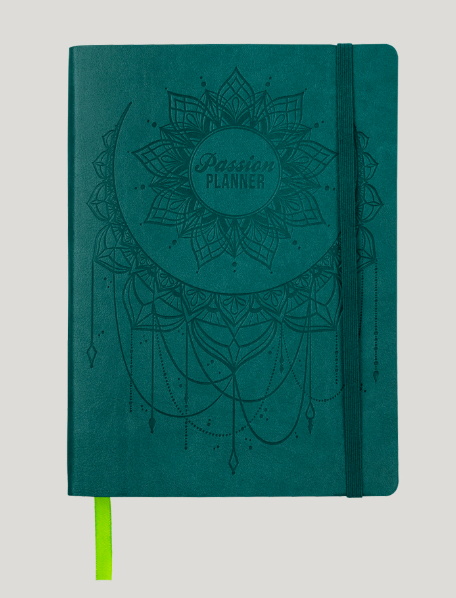
Maybe you have difficulty keeping track of your daily schedule due to brain fog or struggle to remember which medications you’re supposed to take at which times and on which days. Whatever your situation, a planner can be very handy for folks with chronic illness. While there’s absolutely nothing wrong with a DIY planner made out of a stack of paper, sometimes it can be exciting to upgrade. There are a number of unique planners with varying features that cater to anyone’s needs.
“My planner,” said Missy Young. “I track symptoms and medications day to day for a better report for my doctors. I forget things so easily and it helps me remember and organize my days so I don’t overdo it and end up feeling worse. I live out of it!”
Buy the large Passion Planner above for $35 from Amazon.
8. Heating Pad
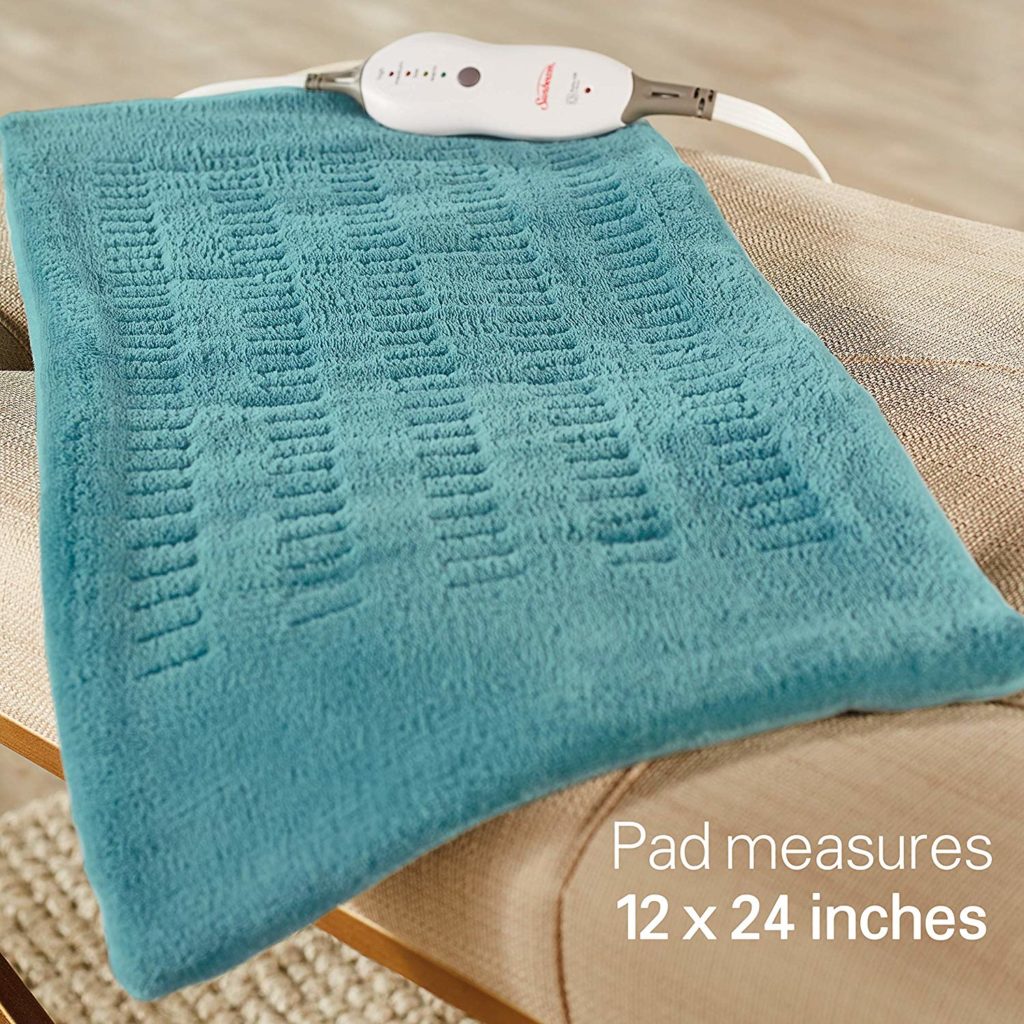
For many people with chronic pain, heating pads may be a necessity. In fact, you may need multiple heating pads – one for every part of your body, or every room of your house. But if you really want to treat yourself, it’s hard to go wrong with a giant, cozy heating pad. Pain relief plus comfort is pretty much a win-win.
“I call it the Cadillac of heating pads. It’s huge, gives me the option for constant heat and wasn’t cheap. It was worth every penny,” said Nikki Mitchell.
“Well, I use hot water bottles heavily for my interstim/interstitial cystitis related pelvic pain. I always splurge on Fashy brand. They’re the best and with how heavy I use them they wear out frequently,” explained April Rose Shoener.
“Sunbeam makes the longest lasting heating pads,” wrote Kaitlyn Lee. “I’m constantly wearing my neck heating pad, I plug it into an extension cord and wear it around the house.”
Buy the heating pad above for $24.72 from Amazon.
For more recommendations from our community, check out these 20 heating products that can help relieve pain.
9. iPad

When you live with chronic illness, you tend to have a lot of downtime. Whether you’re on your couch at home, dealing with some unwelcome symptoms or sitting in the waiting room at the doctor’s office, it’s important to find an enjoyable way to pass the time. An iPad (or similar tablets) is more compact, lightweight and portable than a computer, but has a much larger screen for you to interact with than your phone. You can play games, watch TV, read books, browse social media, listen to music… the possibilities are practically endless.
“An iPad!” Cassidy Galipeau told us. “I got it when I was 16 and the font is huge so I can see it. I use it every day for entertainment, as I am homebound.”
Buy the iPad above starting at $369 from Amazon.
10. Memory Foam Mattress Topper
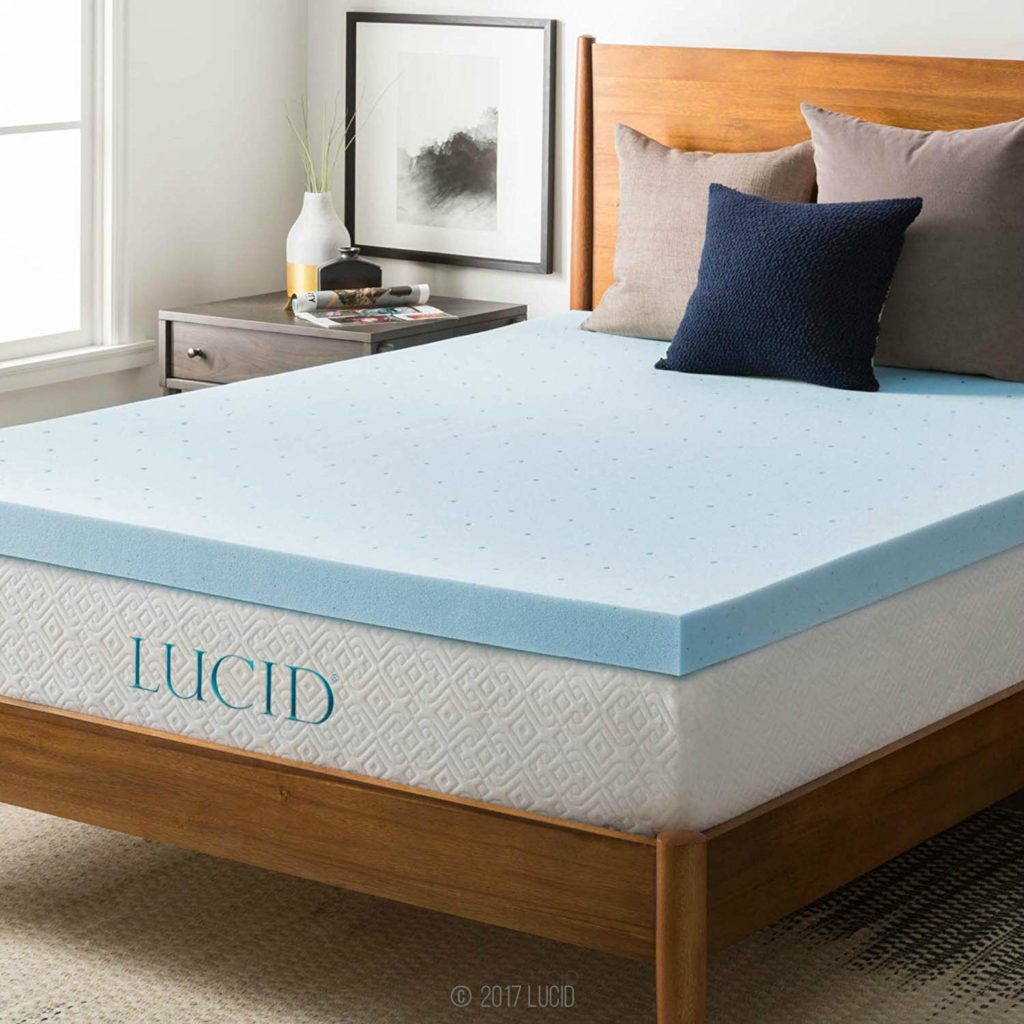
If you need a little extra cushioning in bed but don’t want to invest in an entirely new mattress, a mattress topper is always a great option. It can help take pressure off your joints and provide better support as you sleep. When you live with chronic pain or other symptoms that keep you up at night, it’s important to be as comfortable in bed as possible.
“Memory foam mattress topper and memory foam pillows make a huge difference to my comfort whilst I sleep and how I feel when I get up the next day!” said Rachel Dalgarno.
Shannon Meeks added, “A thick, memory foam mattress pad for my bed. I deal with chronic pain and it helps take some of the pressure off of my body. Definitely worth it.”
Buy the 3-inch gel memory foam mattress topper (queen size) above for $95.99 from Amazon.
11. Comfortable Car

A car is in a bit of a different category when it comes to splurges since it likely isn’t something you would buy to “treat yo’self” on a whim. A car is a big purchase, and for many people with chronic illness, the car you choose can make a big impact on your day-to-day functioning. Various features (such as seat height, seat warmers or enough cargo space for mobility aids) can either be helpful or frustrating. If your current car is causing you issues, it may be time to consider saving up for a different one.
“An SUV because it was getting hard to get into and out of my sedan. I can’t imagine having to bend down that far to get my daughter into and out of her car seat either,” Kelliann Gomez explained.
“My new car!” Liz Halliday shared. “I purchased a Nissan Juke, find it so much more comfortable than anything else I’ve ever sat in. €14,000 well spent.”
“I splurged on a new-to-me car with a remote starter and heated seats, which makes cold days a lot easier to bear if I have to go somewhere. I got ridiculously lucky to find it since it was under my budget, and it has the perfect seat for my back (seven herniated/bulging discs – proper support is everything). It also happens to be my midlife crisis ’emotional support’ car,” wrote Suzi Ra.
Buy the Honda CR-V above for a starting MSRP of $24,350.
For more recommendations from our community, check out these 16 cars people with illnesses and disabilities recommend.
12. Air Purifier
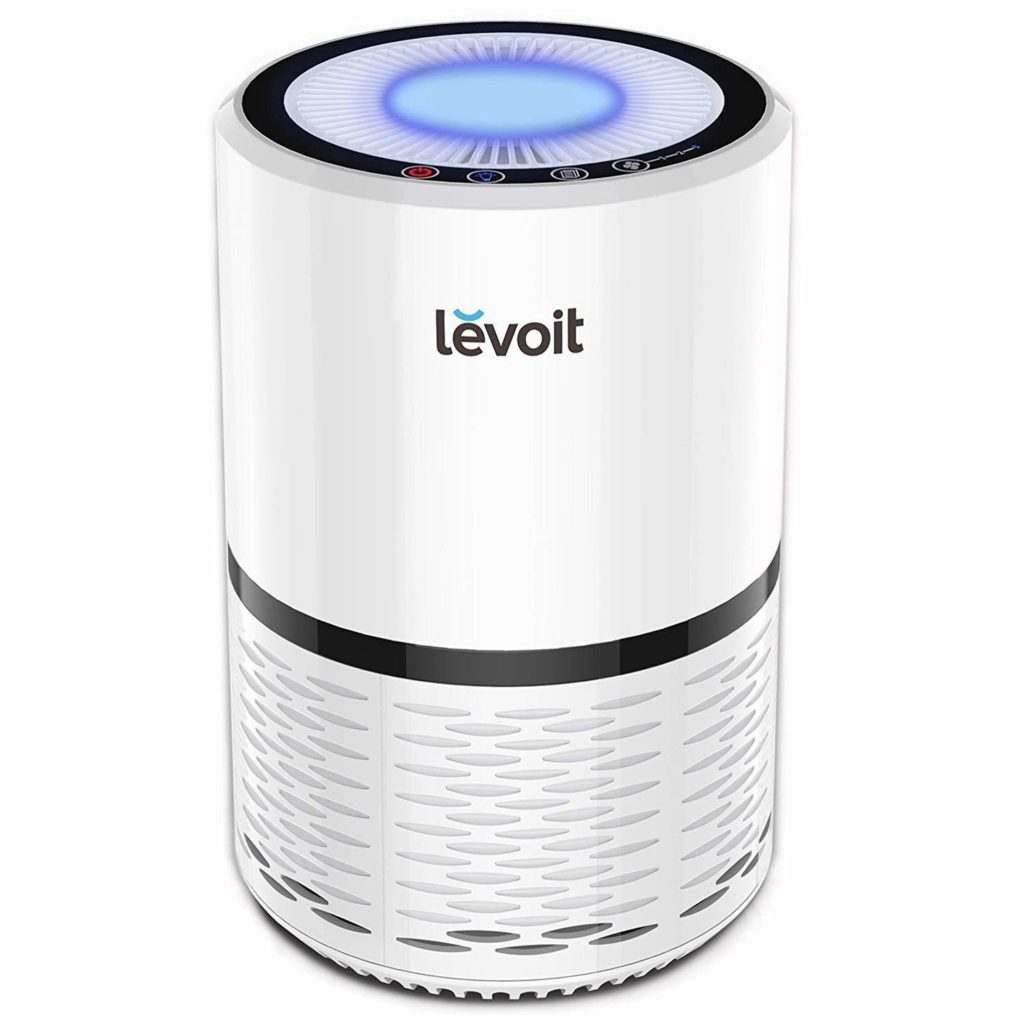
An air purifier helps filter out allergens, pet hair, dander, smoke, mold, odor and large dust particles. This helps provide fresh air in your home, which can be enjoyed by anyone but may be especially helpful for people with asthma, allergies or sensitivities to scents or airborne contaminants.
“Air purifier with ionizer for my bedroom,” said Libby Listens Bassnett. “It helps me breath cleaner air and is more healthy.”
Buy the air purifier above for $100.61 from Amazon.
13. Heated Jacket
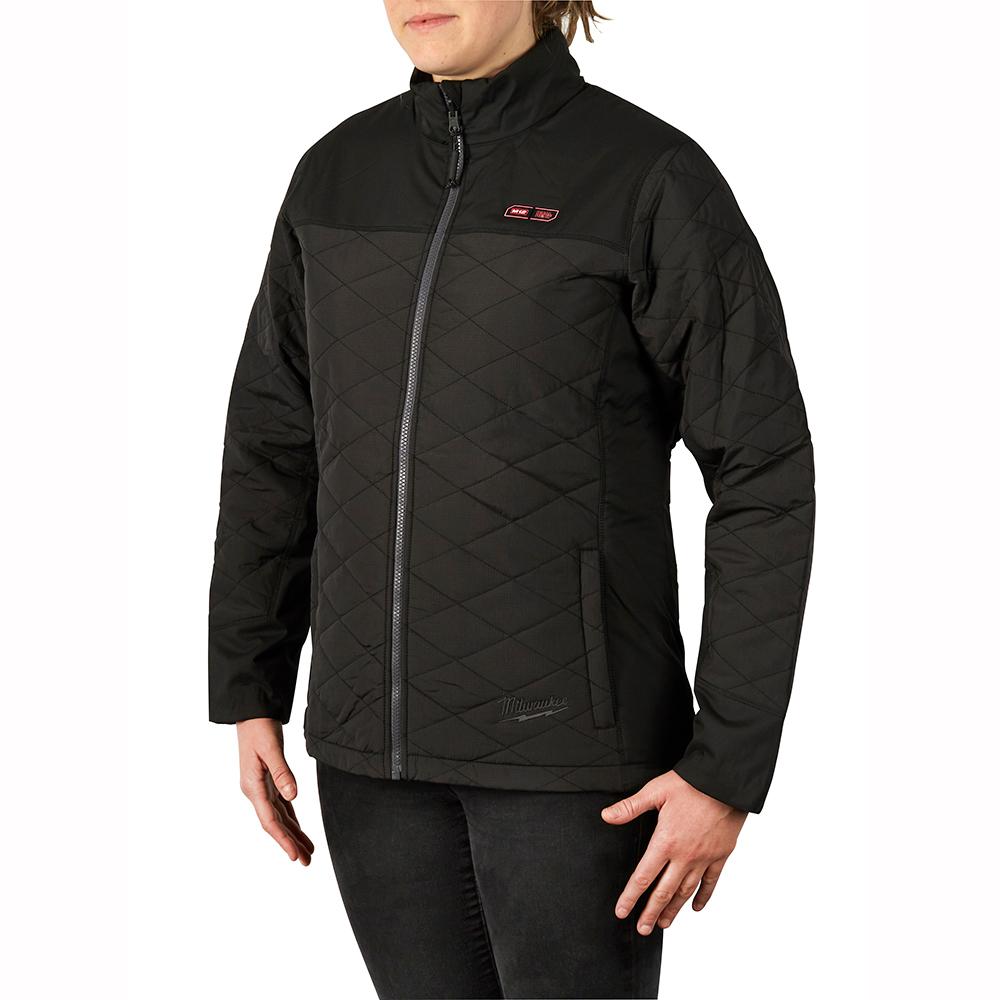
Whether you’re constantly cold due to temperature regulation issues or need heat for pain relief, heating products are essential for many people with chronic illness. But many of the standard go-tos, like heating pads or electric blankets, have to be plugged into an outlet. This jacket sends heat directly to your core and can be worn at home or on the go. Though it’s a bit on the pricey side, it may be a worthwhile splurge if you someone who’s always cold but always out and about.
“Scleroderma/Raynaud’s – heated jacket for me! Will not go anywhere without it during the cool months. Warms my core, neck and pockets. Helps keep my Raynaud’s flares down and with any heat it helps the overall aches. Mine is Milwaukee. Best investment. There are a few different ones. I got the one that fits snug to your body. They have a hoodie version – which I bought; just not as good as the form-fitting one,” Veronica Orquiz Teel advised.
Buy the Milwaukee M12 heated jacket above for $269.99 from Amazon.
14. Rolling Laundry Basket
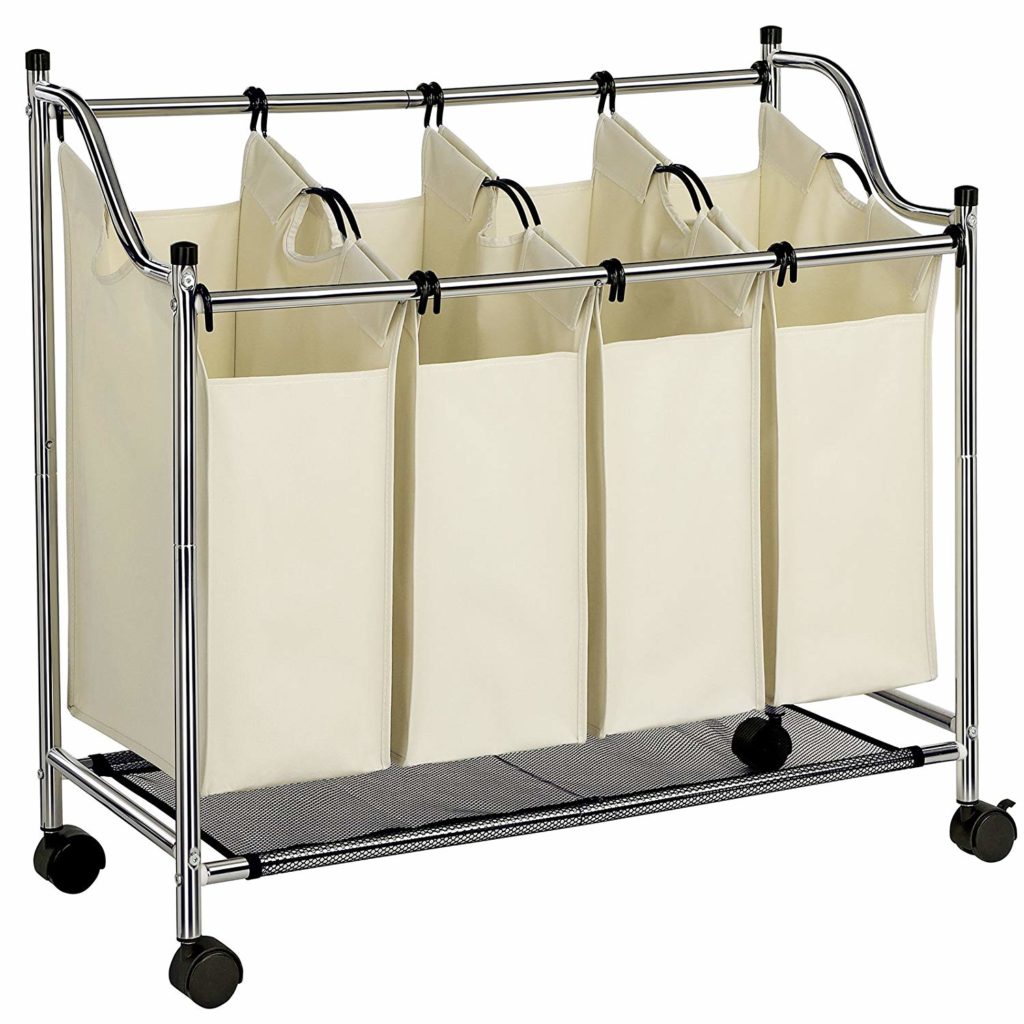
Laundry can be a challenge, to put it simply. Between carrying heavy baskets, bending over to load and unload, folding, ironing, putting it all away, there is so much effort and many steps involved. With chronic illness, laundry truly feels like a marathon. Fortunately, there are several “hacks” out there that can make the process a little bit easier. A rolling laundry basket with sorted compartments allows you to sort as you go, then wheel your clothes straight to the laundry room (no carrying heavy baskets!) when you’re ready to throw them in the wash. When you struggle with pain and fatigue, saving yourself even a small amount of effort can make life so much easier.
“Believe it or not, a rolling laundry basket with two compartments,” Ru Story Huffman said. “With my back and fatigue issues, lifting/carrying the laundry was just too much. My husband actually bought this and it has been a lifesaver.”
“A plastic utility cart to move laundry, groceries, etc around my house,” added Kelly Scott Wooten.
Buy the rolling laundry basket above for $34
For more recommendations from our community, check out these 16 products that can make it easier to do laundry with chronic illness.
15. Electric Blanket
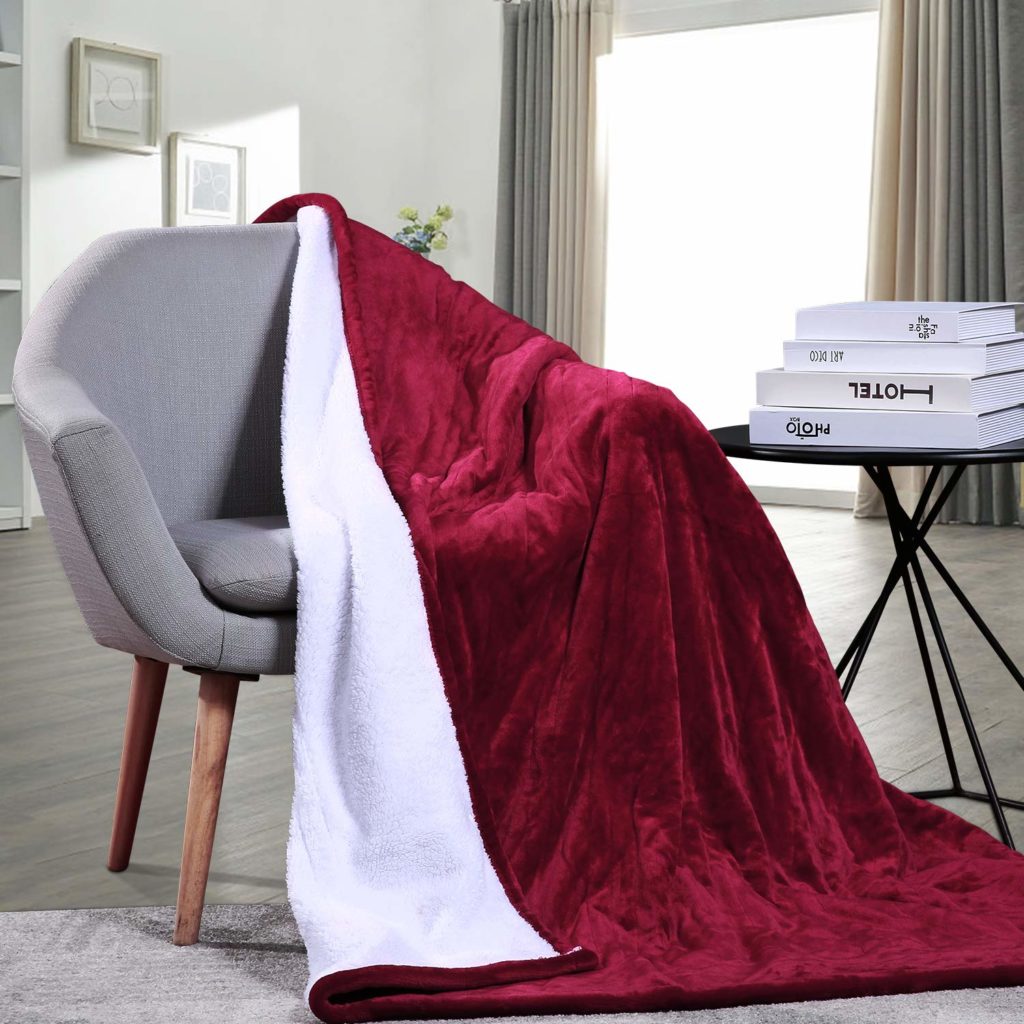
Everyone deserves to have a warm, cozy and comfortable blanket to curl up in – so why not a giant, fuzzy, electric blanket? Not only will you feel like a giant toasty burrito, but the heat from the blanket can help soothe pain and improve your circulation. It’s the ultimate “treat yo’ self” gift.
“Heated blankets for my bed and in the living room,” recommended Helen Ryan-Zimmel.
Buy the heated throw blanket above for $41.99 from Amazon.
For more recommendations from our community, check out these 13 cozy blankets that are perfect to cuddle up with.
16. Shoes With Good Support
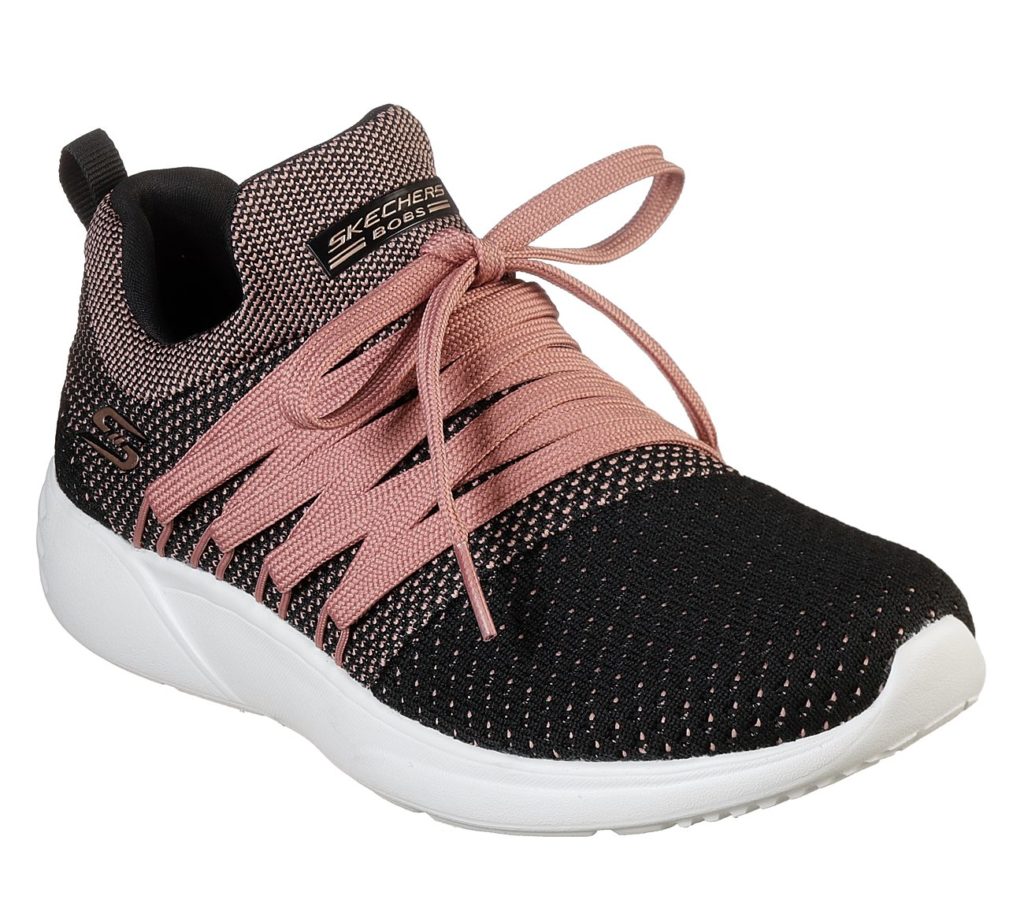
Finding a pair of shoes that protect and support your feet is important for anyone as it can result in better foot health and reduced pain. It’s especially critical, however, for anyone who struggles with arthritis, foot issues, back pain or joint pain. We recommend talking with your doctor to find a pair of shoes that work best for you and your health. Sometimes specialized shoes (or even insoles) can cost more, but it may be worth the reduced pain.
“Shoes. No more cheaply Walmart shoes. I now buy the $100+ shoes that meet the requirement of my OT,” said one Mighty user.
“Shoes with good support,” Sarah Anderson told us. “Helps lessen the pain after standing or walking.”
Buy the Bobs sneakers above for $55 from Amazon.
For more recommendations from our community, check out these 20 shoes people with chronic pain recommend.
17. Mobility Aid
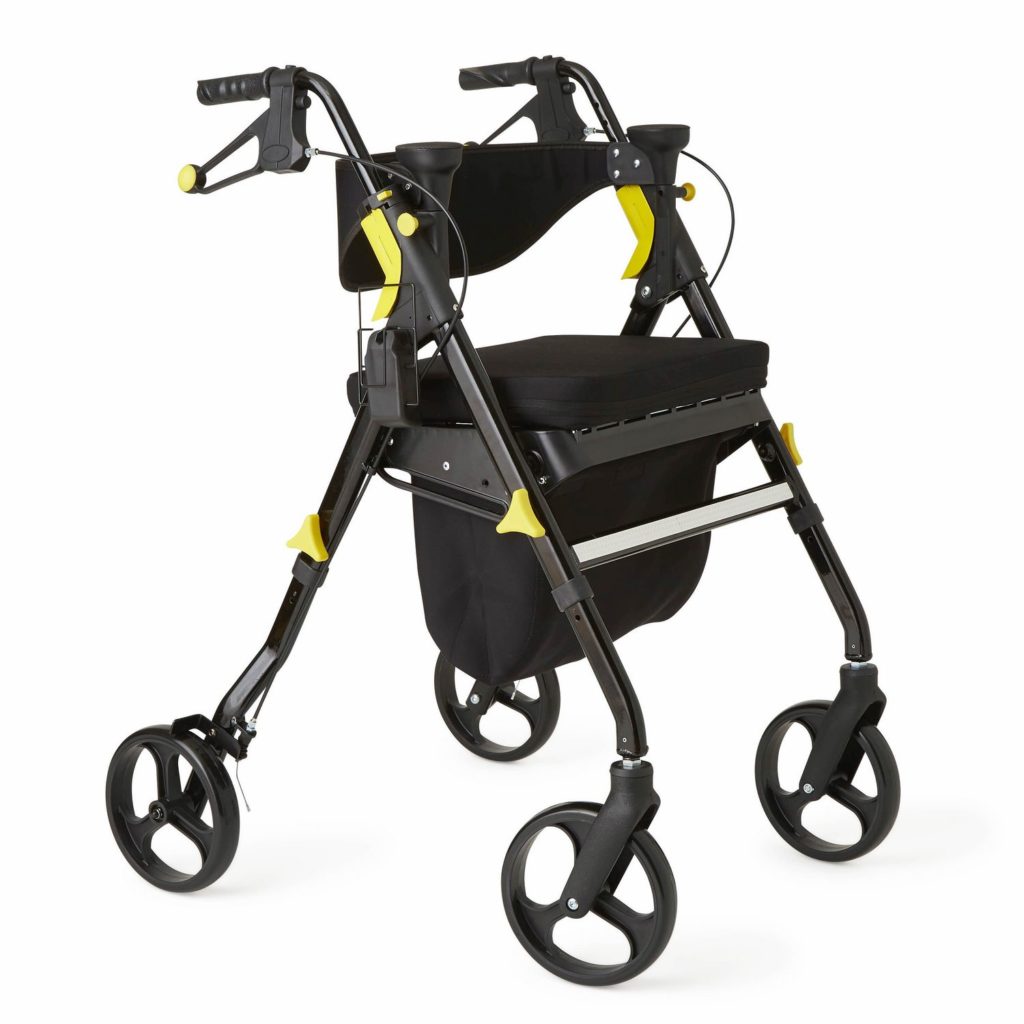
You’re allowed to use whatever mobility aids you need for the sake of your health – and you should feel comfortable and confident doing so! That being said, mobility aids aren’t always cheap, especially if you need one that’s customized to your needs or choose one with a unique design so you can let your personality shine. Though it shouldn’t be a splurge to buy something that’s necessary for your health, many insurance companies don’t cover these products — especially the better designed (or cute) versions.
“My purple walker which was about $300 and the seat cover for it which was $50,” Ash Leigh shared. “It allows me to express myself through the colorful design and I can’t walk anywhere without it.”
“My mobility scooter,” added Kat Atkins. “I go to a lot of conventions presenting panels and staffing. I can walk short distances, but the amount of walking that a convention requires is too much. So after renting mobility scooters for a couple of years, I bought a used one with a new battery for $500. It has more than paid for itself over the years I’ve had it.”
Buy the rollator above for $114.14 from Amazon.
18. Smart Watch
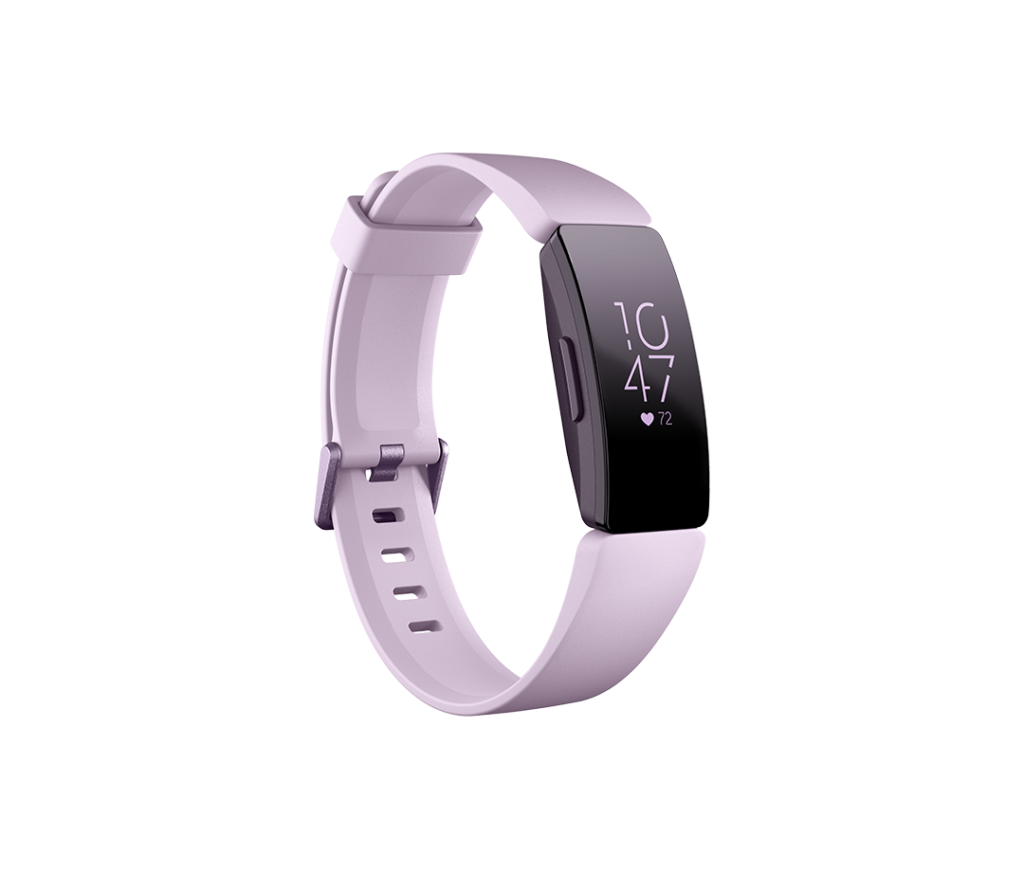
Smart watches, such as the Fitbit or Apple Watch, do a lot more than tell the time. Depending on the brand and model, watches may offer functions such as heart rate monitoring, activity and fitness tracking, sleep tracking, fall detection and emergency SOS. Smart watches are not just for athletes and fitness professionals; they can help anyone monitor their health.
“An Apple Watch to use my heart rate for pacing (ME [myalgic encephalomyelitis]). It has been helping me avoid PEM [post-exertional malaise] crashes,” explained LaSandra Rodriguez.
“A FitBit with an HR monitor, a blood pressure cuff, and a pulse oximeter. Really helpful for me to be able to monitor my vitals at home and has saved me countless trips to the ER/Urgent Care to get ‘checked out,’” Meghan Pagnam Stalford said. “Also helps me to give my doctors better information at my appointments.”
Brittany Goldsworthy added, “My pulse oximeter and Fitbit have been a great investment. I have POTS so they help me keep track of my heart rate and it’s easier to tell if I’m doing OK or if I’m pushing myself too much. I also have CVID [common variable immune deficiency], and the pulse oximeter helps me keep track of my oxygen levels when I’m sick or short of breath. I’m so thankful for both.”
Buy the Fitbit Inspire HR above for $69.95 from Amazon.
19. Recliner
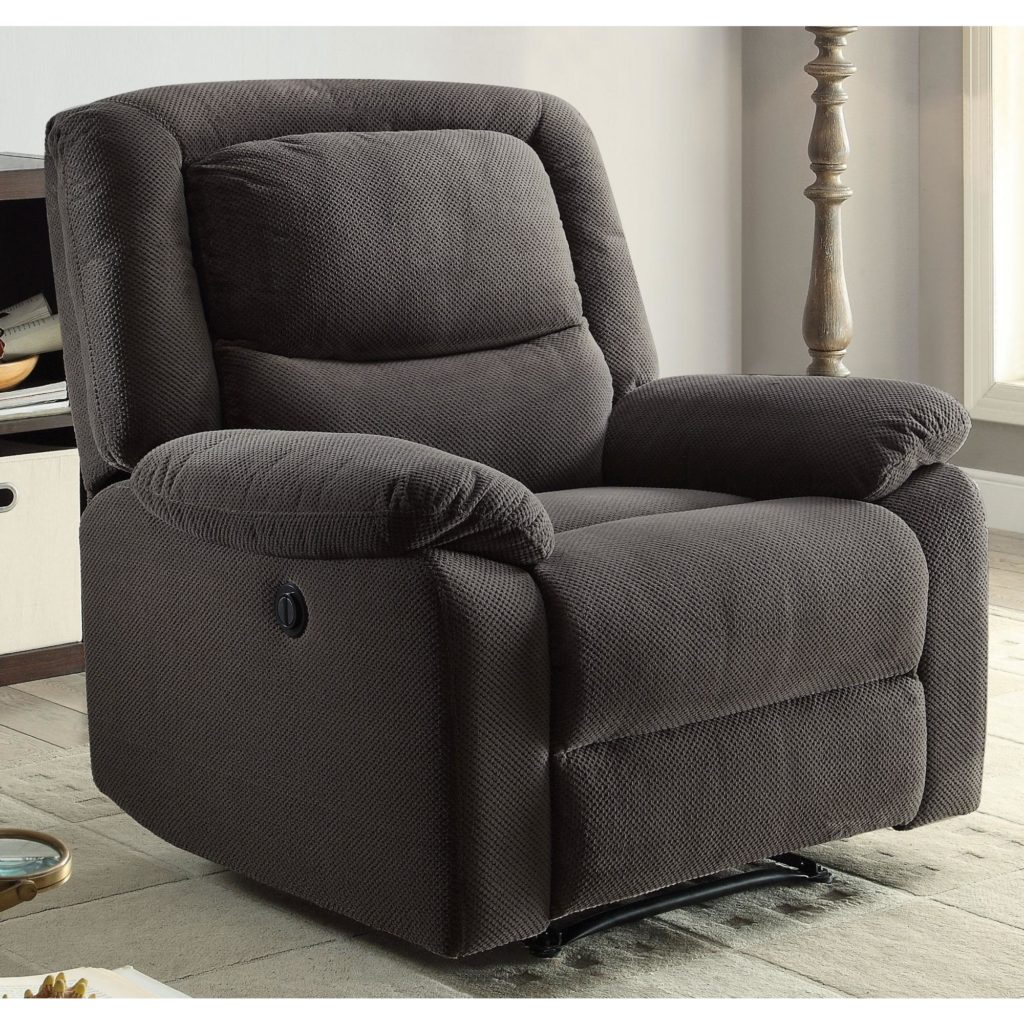
What’s better than a cozy recliner? If you struggle to get comfortable on the couch but don’t want to lie all the way down in bed, a recliner offers you that perfect halfway position. You can sit up to read, write, or draw, then recline to watch TV, listen to music or sleep.
“My recliner,” said Sue Hargraves. “It’s a cuddle spot for me and my dog, a place to sleep when I can’t lay down, and it’s the only chair that my back doesn’t ache.”
Buy the Serta recliner above for $355.17 from Amazon.
20. Housecleaning Service

Cleaning the house takes a lot of time and effort – and when you’re struggling with an illness (or a few), carrying heavy buckets, lifting large bottles of cleaning solution, bending over, reaching up high, and moving all around your home to get in the nooks and crannies can be painful and exhausting. Though it may feel a bit uncomfortable to invite someone into your home to clean, sometimes it’s worth it to have a fresh, clean space that doesn’t cause you stress.
“Housecleaning twice a year! It’s not terribly expensive in my area, and it takes away the stress of those couple a year big cleans. I just touch up here and there in between!” said Cathy Joiner Fitzgerald Marquardt.
“It’s not an item, but a service. I have a house cleaner every other week,” wrote Chris Richards. “I simply wouldn’t be able to clean the house and work. It gives me a chance to have quality of life.”
Request a free in-home estimate from Molly Maid.
21. Pajamas
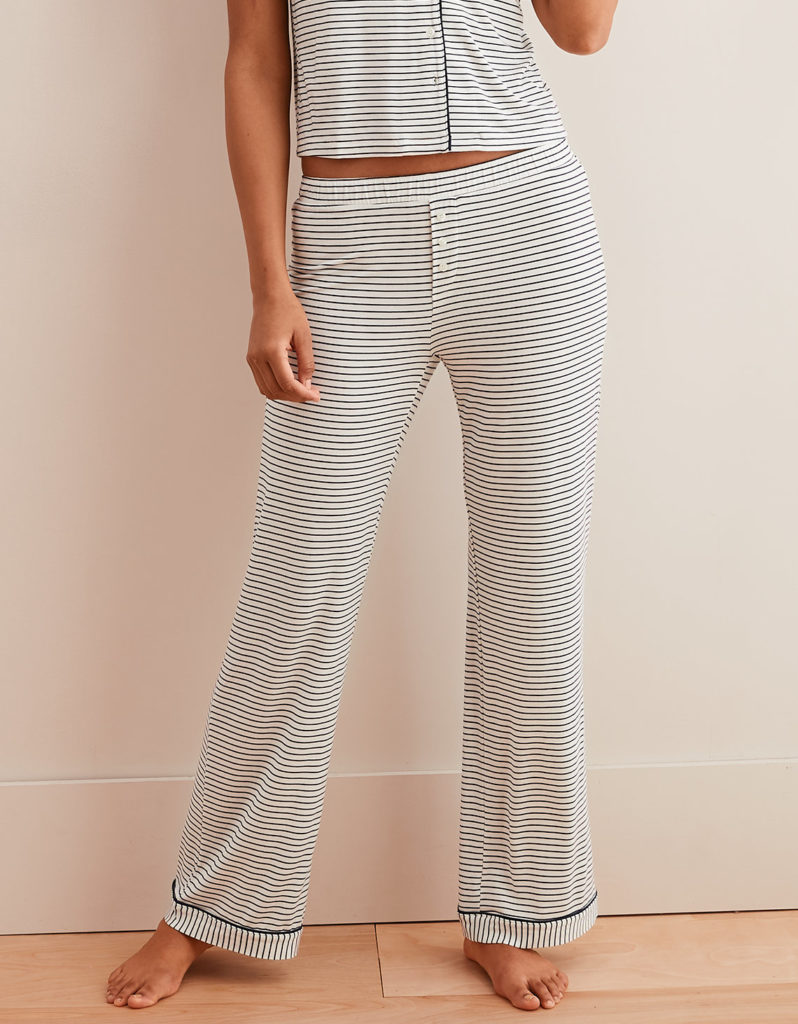
Those living with chronic illness know how important it is to have super soft, comfortable clothing to wear when you’re sick at home. Depending on your health condition and personal preferences, you may require pajamas that are seamless, loose, 100 percent cotton or sleeveless (or maybe you don’t wear any pajamas at all – that’s OK, too!). Whatever your preference, not much compares to the feeling of putting on your favorite pair of jammies and curling up in bed. You deserve to own something that makes you feel good.
“I spend an obscene amount of money on pajamas and lounge clothes, but I live in them practically. They have to be ultra soft material with flat seams, which means expensive…” Jamie Gallion explained.
Buy the Aerie Real Soft pajama pants above for $20.96 from Aerie.
For more recommendations from our community, check out these 20 beautiful pajamas to wear on days you’re stuck in bed.
22. Leggings
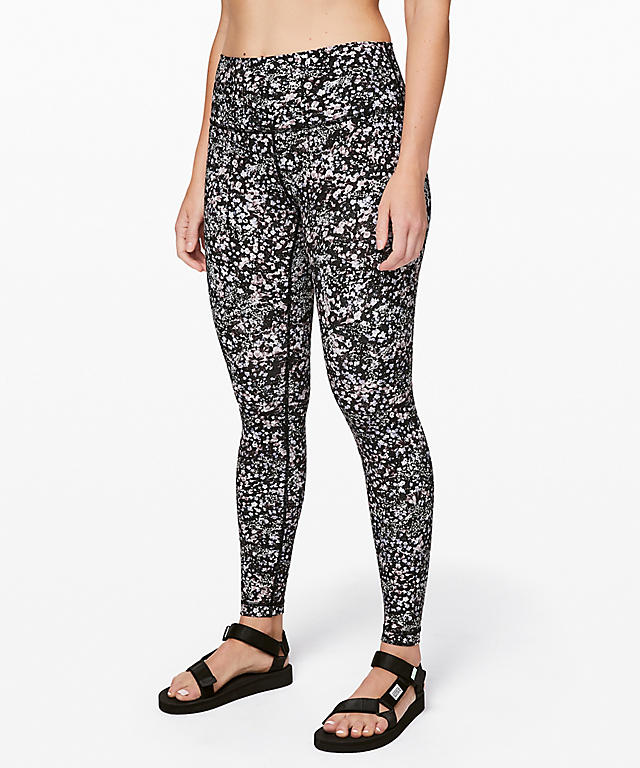
Leggings are a must-have for many in our community. Some are only able to tolerate soft, comfortable leggings due to chronic pain or sensory issues. Others find the flexibility in leggings essential due to swelling or bloating. Some leggings provide compression, which can help people who struggle with circulation issues or loose, unstable joints. Who knew leggings were so versatile? There are a plethora of leggings out there in a variety of fabrics, styles, cuts and designs, so it’s important to do some research and find leggings that work best for you. (And for those who don’t like wearing leggings, we’ve got you covered!)
“Lularoe leggings! Clothes are necessary, these are expensive, but they are so worth it for my chronic neuropathic pain! They are so soft that they have become what I basically live in. Now I don’t see it as a splurge anymore since I’m finding lots of deals online! It’s a big deal to find comfy clothes for someone with chronic pain,” wrote Cassidy Galipeau.
Buy the leggings above for $98 from Lululemon.
For more recommendations from our community, check out these 22 legging brands people with chronic illness recommend.
23. Orthopedic Pillows
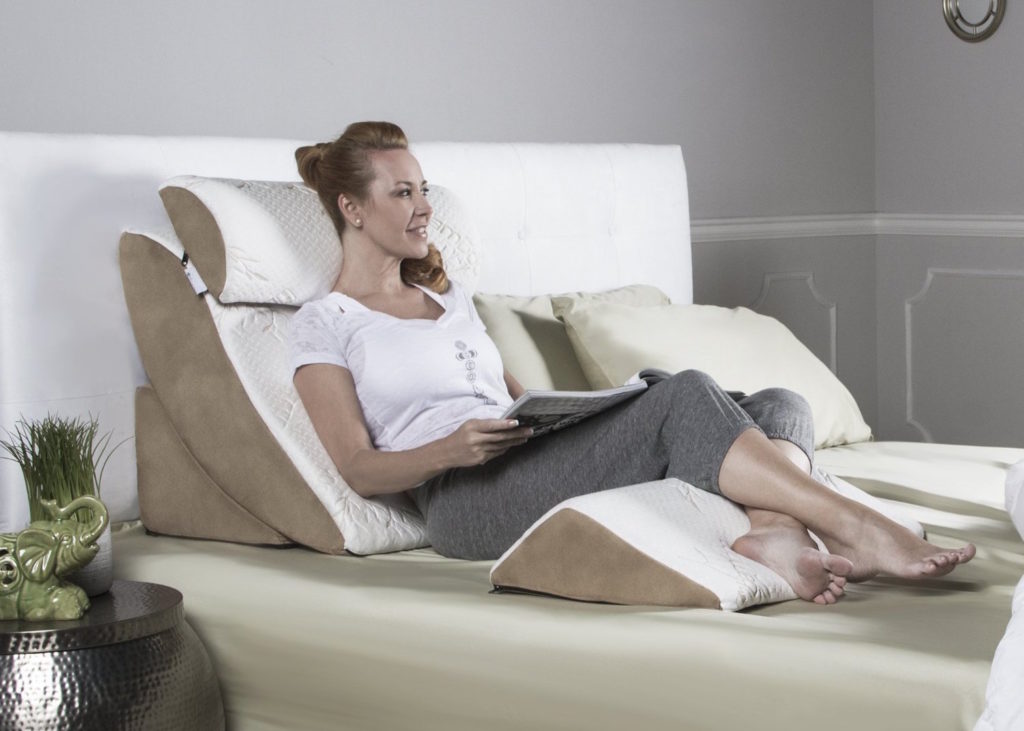
An orthopedic pillow is designed to correct your body posture while you’re lying down. These pillows come in all shapes and sizes to accommodate all people and parts of the body. They may be especially helpful for people who struggle with painsomnia or who have a difficult time getting comfortable in bed. By improving your posture in bed, you should hopefully be able to get better sleep, feel more rested during the day and reduce your pain.
“I just invested in a set of orthopedic pillows [featured above] to help with my chronic hip and back pain,” Jennifer Hillbrand Phifer shared. “I haven’t had to sleep in my recliner since I got them!”
“A posturepedic pillow. It cost over $100 but it has reduced neck and shoulder pain so much and allowed me to sleep much better,” wrote Sierra Robertson-Roper.
“A body pillow,” said Jenn Ruggeri. “It allows me to more comfortably lie on my side to sleep without causing every joint in my body to hurt.”
Buy the Avana orthopedic support pillow set above for $179.99 from Amazon.
For more recommendations from our community, check out these 27 comfortable pillows that help people with chronic pain sleep better.
24. Noise-Canceling Headphones

Some folks may wear noise-canceling headphones simply to block out the world while they tune in to their favorite music, podcast or audiobook. For others, noise-canceling headphones can serve another purpose. Some people with chronic illness may utilize these headphones as ear protection due to a condition that causes sound sensitivity, such as hyperacusis or misophonia, or a general sensory sensitivity, as loud or overlapping noises can trigger symptoms in people with conditions like migraine, fibromyalgia and ME/CFS. If you are sensitive to sound, having a pair of noise-canceling headphones on hand may be a helpful way to manage symptoms.
“Noise-canceling headphones have by far been the best. When I can’t process because of extreme pain and other symptoms or I’m in a loud place with my kids they really help me keep centered,” Mary Oster Boumeester shared.
“Bluetooth noise-canceling headphones,” recommended Heather White. “It makes watching movies during my infusions and hospitalizations much easier.”
Buy the Sony noise-canceling headphones above for $198 from Amazon.
25. Massage
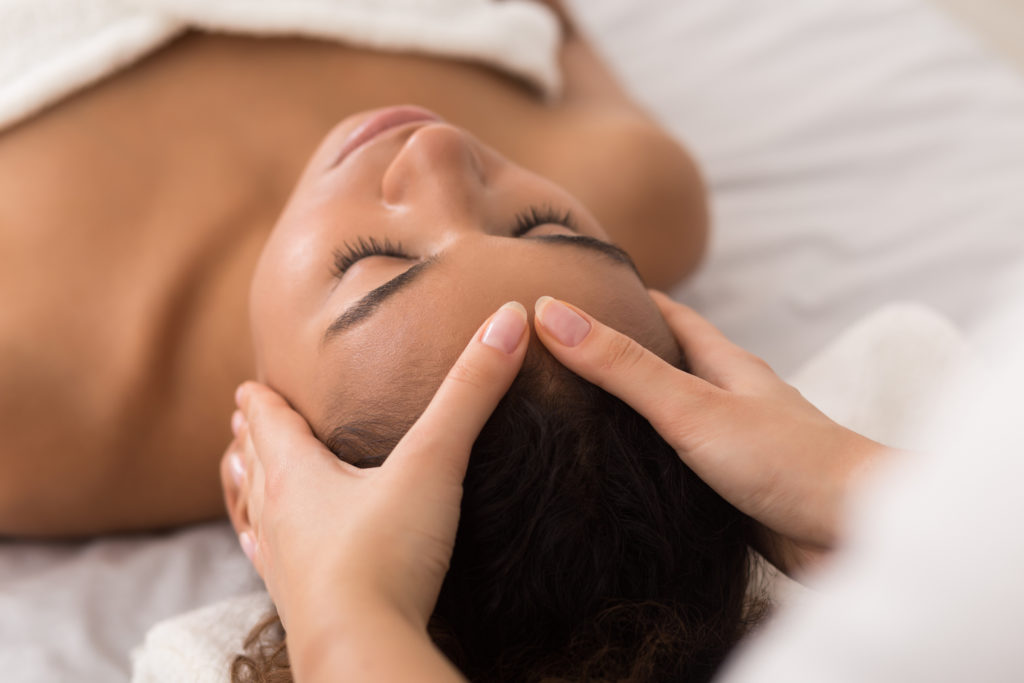
Massage is said to have a number of health benefits, both physical and mental. Many people find that massage helps reduce stress, improve circulation, reduce fatigue, reduce muscle pain and tension and reduce anxiety and depression. It may be especially beneficial for people with fibromyalgia, headaches/migraine, myofascial pain syndrome, soft tissue injuries and temporomandibular joint pain (TMJ). Though massage is sometimes seen as a luxury or a “day at the spa,” many find it is worth the cost as it relieves some of their pain and symptoms.
“Massage,” wrote Llana Harp. “It’s therapy, not pampering. The cycle of stress then tension then more stress. Break the cycle of physical tension.”
“Getting monthly deep-tissue massages. I wish I could afford weekly massages!” added Vanessa Runnalls.
Buy a gift card to Massage Envy.
26. Audiobooks

If you’re looking for something to do during all the downtime that can come with chronic illness, listening to audiobooks may be a great option. You can listen from just about anywhere – whether you’re resting at home, en route to a doctor appointment or lying in a hospital bed post-surgery. Audiobooks are also beneficial for those who have a sensitivity to light, as you can simply close your eyes and listen.
“Audible account and books,” said Brayden Stewart. “When I can’t get out of bed and lights hurt, I just listen to books.”
Subscribe to Audible for $14.95/month (after a 30-day free trial).
27. Mattress
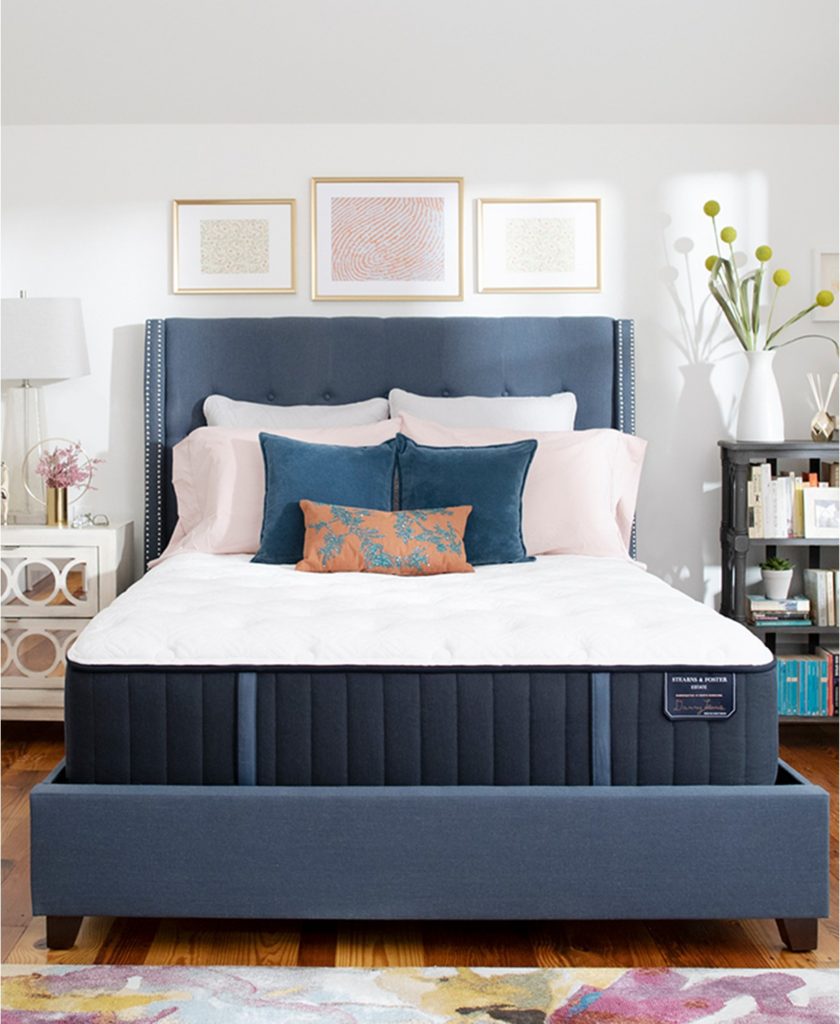
A mattress is arguably one of the most important aspects of your bed. How comfortable (or uncomfortable) your mattress is can really make or break your quality of sleep. Plus, those of us with chronic illness tend to spend more time in bed than the average person, so it’s especially important for the bed to provide support and stability without causing additional pain. Mattresses can certainly be on the pricey side – but it may be a worthy investment, especially if you struggle with chronic pain.
“Our new mattress – Stearns & Foster. It was very expensive! But it’s made such a huge difference!!!” Donna-Jean Isnor shared.
“My mattress,” said Kat Atkins. “Being in pain constantly means that I spend a lot of time in bed. After two surgeries in a short time span, I couldn’t get comfortable in my old mattress and ended up sleeping on an air mattress for six months. So I started looking into different mattresses and went for a Sleep Number. I really liked it because I can adjust the firmness depending on my pain levels.”
Buy the Stearns & Foster Estate Hurston 14″ Luxury Cushion Firm Mattress (queen size) above for $1,499 from Amazon.
For more recommendations from our community, check out these 16 mattresses that help people with chronic pain sleep better.

